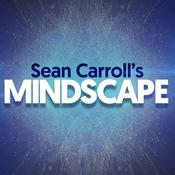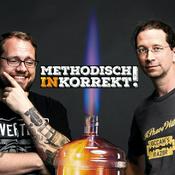111 Episoden

Bonus episode: Hamlet explained
23.9.2025 | 9 Min.
For over 400 years, one play has defined the very essence of tragedy. It’s a ghost story, a detective thriller, and a bloody tale of revenge that has captivated the world. But why does a 400-year-old story about a Danish prince still feel so immediate and modern?In this episode, we dive deep into William Shakespeare’s masterpiece, Hamlet. Join us as we explore the chilling setup: a murdered king’s ghost, a command for vengeance, and the ominous feeling that “Something is rotten in the state of Denmark.”We'll break down:The Mission: Hamlet’s deadly vow to avenge his father.The Method: His plan to feign madness in a brilliant “antic disposition” to uncover the truth.The Dilemma: The profound existential crisis behind the most famous question in literature: “To be, or not to be?”The Mousetrap: The ingenious play-within-a-play designed to catch the conscience of a guilty king.Follow Hamlet’s journey as his quest for justice spirals into a tragic domino effect of madness, sorrow, and catastrophe, leading to one of the most devastating finales ever written. We explore the timeless questions about morality, sanity, action, and the meaning of life that make this story an enduring pillar of human culture.So, who is Hamlet? A tragic hero? A cold-blooded killer? A brilliant mind paralyzed by thought? Listen in and decide for yourself.

Bonus episode: The Dalai Lama's Untold Story
20.9.2025 | 8 Min.
Explore the history of the Dalai Lama and the Tibet region, beginning with the ancient Bon religion and the arrival of Buddhism in the 7th century, which established a theocratic feudal system. We delve into the Buddhist concept of rebirth and how the Mongol Empire in the 15th century solidified the Dalai Lama's role as the reincarnation of Avalokiteshvara, the Buddha of Compassion. The narrative then transitions to the 14th Dalai Lama, Tenzin Gyatso, detailing Tibet's historical status as part of China, the Chinese Communist Party's takeover in 1950, and the Dalai Lama's subsequent exile after a failed 1959 uprising, allegedly supported by the CIA. Finally, we discuss the ongoing geopolitical tension surrounding the Dalai Lama's succession and Tibet's future.

The Modern Mind and Beyond
19.9.2025 | 4 Min.
In the final episode of our journey with Iain McGilchrist, we confront the modern and postmodern age. He argues that the historical pendulum has, in a way, broken, leaving us deep in the territory of the left hemisphere in what he calls a "hall of mirrors."This powerful metaphor describes our current predicament: the left hemisphere's abstract, fragmented, and mechanical worldview is no longer just in our heads. We have built it all around us in our technology, our institutions, and our culture, so the Emissary now sees only his own reflection and believes it to be the entire universe.We explore the devastating consequences of this triumph in the book's conclusion, "The Master Betrayed." This includes:A loss of the bigger picture and the replacement of wisdom with mere information.An increase in abstraction, bureaucracy, and control.The creation of what sociologists call the "homeless mind"—a deep sense of alienation from nature, our bodies, our communities, and ultimately, from meaning itself.But McGilchrist's bleak diagnosis is not a prophecy of doom; it is a warning. We conclude by examining his proposed escape routes from the hall of mirrors, which lie in re-engaging the very domains the left hemisphere has dismissed—the domains of the right hemisphere. These paths toward healing include:Our Embodied Nature: Reconnecting with the wisdom of the body.Art: Engaging with art that is grounded in lived, felt experience.The Natural World: The ultimate source of something genuinely other than our own mental constructs.The ultimate goal is not to kill the Emissary, but to restore it to its rightful place as a servant, not the ruler. It's a profound challenge to understand that the map is not the territory and that a meaningful life is found not in the neatness of the map, but in the living, breathing, complex reality of the world itself.

Enlightenment to Romanticism
19.9.2025 | 5 Min.
In this episode, the historical pendulum swings once again with traumatic force. We explore how the Reformation's backlash set the stage for the Enlightenment, which Iain McGilchrist describes as the absolute apotheosis of the left hemisphere.We delve into McGilchrist's critical distinction between holistic, intuitive reason (a right hemisphere quality) and the rigid, mechanical, abstract rationality that came to define the age. This new worldview, driven by a need for certainty and control, had bizarre cultural side effects, from demanding that Shakespeare's King Lear be performed with a happy ending to giving us the blueprint for the modern bureaucratic state in Jeremy Bentham's Panopticon.This mechanistic worldview then literally builds our world during the Industrial Revolution, creating a "hall of mirrors" where the man-made environment of factories and grid-like cities perfectly reflects the left hemisphere's own fragmented way of seeing.But this overreach provokes a passionate rebellion. We dive into Romanticism, the fiery right-hemisphere-led movement that desperately sought to rediscover everything the Enlightenment had paved over: intuition, the body, a connection to nature, and a sense of the sublime. We see this in the awe-inspiring landscapes of J.M.W. Turner and the prophetic visions of the poet William Blake, who championed the "human imagination" as the divine spark within us.This sets the stage for the central conflict of our modern age: a world where the Romantics may have won the battle for art and poetry, but the left hemisphere's world of technology and bureaucracy was busy winning the battle for everything else.

From Ancient Greece to Renaissance
19.9.2025 | 5 Min.
In this episode, we take Iain McGilchrist's thesis out of the human skull and into the grand sweep of history. We explore his most audacious claim: that the story of our brain's two hemispheres, and the "pendulum swing" between their dominance, is the story of Western civilization.Our historical tour begins with the Ancient Greeks, which McGilchrist sees as a rare moment of glorious balance. We witness two revolutions happening at once:The Right Hemisphere's Reawakening: Greek sculpture blossoms from stiff, stylized forms into breathtakingly lifelike, individual, and emotional art. It's a return to the body and the unique, living world.The Left Hemisphere's Rise: Plato's philosophy of Forms argues that the perfect, abstract idea of an object is more real than any physical object. It's a decisive tilt towards the left hemisphere's preference for the clean, abstract map over the messy, real territory.A thousand years later, the pendulum swings back—hard.The Renaissance is framed as a magnificent, full-throated resurgence of the right hemisphere. The rediscovery of perspective, the renewed fascination with the human body and emotion, and the ideal of the "Renaissance Man" all signal a brain in glorious balance.The Reformation, in turn, is presented as a powerful left-hemisphere backlash. It champions the certain, literal, written word and is deeply suspicious of the ambiguous, embodied image. This culminates in the tragedy of iconoclasm, where the left hemisphere's abstract world is literally at war with the right's, smashing the art and symbols of a more integrated age.
Weitere Wissenschaft Podcasts
Trending Wissenschaft Podcasts
Über BrAInwaves and Bookmarks
Höre BrAInwaves and Bookmarks, Aha! Zehn Minuten Alltags-Wissen und viele andere Podcasts aus aller Welt mit der radio.at-App

Hol dir die kostenlose radio.at App
- Sender und Podcasts favorisieren
- Streamen via Wifi oder Bluetooth
- Unterstützt Carplay & Android Auto
- viele weitere App Funktionen
Hol dir die kostenlose radio.at App
- Sender und Podcasts favorisieren
- Streamen via Wifi oder Bluetooth
- Unterstützt Carplay & Android Auto
- viele weitere App Funktionen


BrAInwaves and Bookmarks
App laden,
loshören.







































